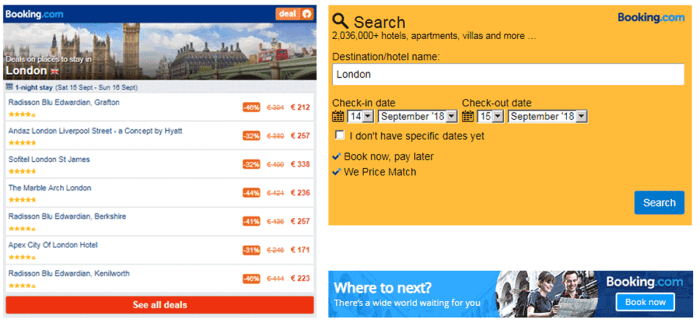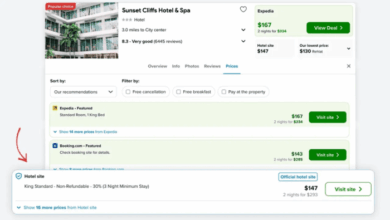Booking extranet integration with other travel platforms

Booking extranet integration with other travel platforms stands at the forefront of modern hospitality management, seamlessly connecting hotels and travel agencies to optimize operations and enhance customer satisfaction. By integrating booking extranets with various travel platforms, stakeholders unlock a world of possibilities, allowing for real-time updates and streamlined processes that significantly improve the overall guest experience. The convergence of technology and travel creates a dynamic landscape where efficiency is paramount, and understanding the nuances of these integrations is crucial for any business aiming to thrive in a competitive market.
As the travel industry continues to evolve, the significance of integrating booking extranets cannot be overstated. This integration not only fosters better communication between service providers but also empowers customers with a richer, more personalized booking experience. From Online Travel Agencies (OTAs) to Global Distribution Systems (GDS), each platform plays a vital role in this intricate ecosystem, driving home the need for hotels and agencies to embrace these technological advancements to stay ahead of the curve.
Importance of Booking Extranet Integration
The integration of booking extranets with travel platforms plays a pivotal role in the evolution of the hospitality industry. As the landscape of travel becomes increasingly digital, hotels and travel agencies must adapt to remain competitive. This integration ensures seamless communication between various systems, allowing for streamlined operations and improved service delivery.
Connecting booking extranets with travel platforms offers numerous benefits that significantly enhance operational efficiency and customer satisfaction. By automating the exchange of data such as availability, pricing, and reservations, hotels can reduce the likelihood of overbookings and errors. Furthermore, travel agencies gain access to real-time information, enabling them to provide accurate and timely services to their clients.
Benefits for Hotels and Travel Agencies
The integration of booking extranets with travel platforms provides both hotels and travel agencies with essential advantages that drive growth and customer loyalty. This synergy not only enhances internal processes but also enriches the overall customer experience. The following points detail the key benefits:
- Real-time Data Synchronization: Hotels can manage room inventory and pricing in real-time, ensuring that travel agencies always have access to the most current information.
- Increased Visibility: Travel agencies can promote hotel listings more effectively across multiple platforms, leading to a broader audience reach and potential bookings.
- Streamlined Operations: The automation of data exchanges reduces manual tasks, freeing up staff to focus on providing exceptional service to guests.
- Enhanced Customer Experience: With accurate and timely information at their fingertips, travelers receive better service, from booking to check-in and beyond.
- Competitive Edge: Hotels leveraging integration can respond faster to market changes, adjust pricing dynamically, and offer special promotions, making them more attractive to potential guests.
Integrating booking extranets not only optimizes operational efficiency but also significantly elevates the customer journey, establishing a foundation for long-term loyalty.
Through these integrations, hotels and travel agencies can foster a more dynamic and responsive relationship with their clients, ultimately leading to a significant boost in satisfaction and retention rates. The strategic use of technology in this manner is not just a trend; it represents a fundamental shift in how travel-related services are delivered in a highly competitive market.
Types of Travel Platforms for Integration

The integration of booking extranets with various travel platforms is essential for maximizing reach and optimizing operational efficiency. By connecting to different platforms, businesses can streamline processes, enhance visibility, and ultimately improve the booking experience for travelers. Understanding the various types of travel platforms available for integration is crucial for any entity looking to thrive in the competitive travel sector.Travel platforms can be categorized into several types, each playing a unique role in the overall booking ecosystem.
The primary types include Online Travel Agencies (OTAs), Global Distribution Systems (GDS), and other specialized travel service providers. Each type has its own characteristics and contributes in distinct ways to the marketplace.
Online Travel Agencies (OTAs)
OTAs are digital marketplaces that allow travelers to book various travel services, including flights, hotels, and rental cars, all in one place. Popular examples include Expedia, Booking.com, and Airbnb. The major benefits of OTAs include their extensive inventory of travel options and their ability to attract a large customer base through robust marketing strategies.
- Extensive Reach: OTAs often have large marketing budgets, enabling them to reach a wide audience and provide valuable exposure for accommodations and services.
- User-Friendly Interface: These platforms typically feature intuitive designs that enhance the customer experience, allowing users to filter options and make reservations easily.
- Competitive Pricing: Due to their volume of bookings, OTAs can negotiate better rates with suppliers, often passing savings onto customers.
OTAs contribute significantly to the booking ecosystem by acting as intermediaries between suppliers and consumers, allowing for a more dynamic pricing model and facilitating price comparisons for users.
Global Distribution Systems (GDS)
GDS are centralized networks that enable travel agents and other businesses to access a vast array of travel services from different suppliers. Prominent GDS platforms include Amadeus, Sabre, and Travelport. They provide a backbone for many OTAs and traditional travel agencies, connecting them to airlines, hotel chains, and car rental services.
- Real-Time Inventory: GDS platforms provide up-to-date information on availability and pricing, ensuring that travel agents can make informed decisions quickly.
- Comprehensive Data: They offer various analytics tools that help travel businesses understand market trends and make strategic decisions based on data.
- Integration Capabilities: GDS systems are designed for easy integration with booking extranets, making them an ideal choice for businesses looking to enhance their technological capabilities.
By serving as a vital link between travel suppliers and agencies, GDS not only enhance operational efficiency but also ensure that travelers have access to a wide range of options and competitive pricing.
Other Travel Service Providers
Aside from OTAs and GDS, there are several other specialized travel service providers that can be integrated with booking extranets. These include meta-search engines, travel marketplaces, and niche service providers like local tour operators.
- Meta-Search Engines: Platforms like Kayak or Trivago allow users to search multiple OTAs simultaneously, giving them a comprehensive view of available options and pricing.
- Travel Marketplaces: Websites such as GetYourGuide or Viator specialize in activities and experiences, allowing tourists to book local tours, tickets, and other services directly.
- Niche Providers: Local operators offer specialized services that may not be available through traditional OTAs, catering to specific interests such as eco-tourism or adventure travel.
These providers enrich the travel booking ecosystem by offering unique services and options that appeal to a broader array of consumer preferences, ultimately enhancing the travel experience.
Technical Aspects of Integration
The successful integration of booking extranets with various travel platforms hinges on understanding the technical requirements and protocols that facilitate seamless data exchange. This integration not only enhances operational efficiency but also elevates user experience by ensuring accurate and timely information flow between systems.Integrating booking extranets involves several critical technical elements, primarily focusing on APIs (Application Programming Interfaces), data exchange protocols, and security considerations.
Understanding these components is essential for achieving a robust and efficient connection between different travel platforms.
Technical Requirements for Integrating Booking Extranets
To initiate the integration process, certain technical requirements need to be met. This involves a detailed assessment of both the booking extranet and the travel platforms involved. Key requirements include:
- System Compatibility: Ensure that the booking extranet and the travel platforms utilize compatible technologies and programming languages.
- API Access: Access to well-documented APIs is crucial for establishing connections between systems.
- Authentication Mechanisms: Implementing secure authentication methods, such as OAuth or API keys, to safeguard data during exchanges.
- Data Structures: Understanding the data structures used by each platform, including formats like JSON or XML, to facilitate effective data mapping.
APIs and Their Role in the Integration Process
APIs serve as the backbone of integration, allowing different systems to communicate and share data effectively. They encapsulate the functionality of software components and provide a standardized way to interact with services. In the context of booking extranets, APIs enable real-time access to inventory, pricing, and booking information.The use of RESTful APIs is particularly common in the travel industry. These APIs utilize HTTP requests to perform CRUD (Create, Read, Update, Delete) operations, ensuring that data remains current and accessible.
For instance, when a booking is made on a travel platform, the API instantly updates the relevant data on the booking extranet, reducing the chances of overbooking.
Data Exchange Protocols Commonly Employed
Data exchange protocols are essential for standardizing the way data is transferred between integrated systems. Below are the commonly utilized protocols in the integration of booking extranets:
- XML (eXtensible Markup Language): Frequently used for data interchange, XML allows for a structured format that can be easily parsed and understood by different systems.
- JSON (JavaScript Object Notation): Gaining popularity for its lightweight and easy-to-read structure, JSON is widely adopted in modern APIs for data exchange.
- SOAP (Simple Object Access Protocol): Although less common in recent years, SOAP remains a reliable protocol for exchanging structured information, particularly in enterprise-level applications.
- CSV (Comma-Separated Values): Often used for batch data uploads, CSV files facilitate the import and export of large datasets between systems.
The choice of protocol often depends on the specific requirements of the travel platforms and the nature of the data being exchanged. Implementing the correct protocol is crucial for ensuring data integrity and fluid communication across all integrated systems.
Integration Process and Steps
Integrating a booking extranet with other travel platforms involves a systematic approach that ensures seamless connectivity and data flow. This process not only enhances operational efficiency but also improves user experience, making it crucial for businesses in the travel sector. The following Artikels the essential steps, tools, and common challenges faced during integration.
Step-by-Step Integration Process
The integration process requires careful planning and execution. Each step builds on the previous one, ensuring that all components work harmoniously. The steps include:
- Define Integration Objectives: Clearly Artikel what you aim to achieve with the integration, such as real-time updates or improved booking processes.
- Select Appropriate Travel Platforms: Choose platforms that align with your business needs and customer preferences, considering factors like market reach and user interface.
- Conduct a Technical Assessment: Evaluate the existing infrastructure and identify any necessary upgrades or modifications required to facilitate integration.
- Choose Integration Tools: Identify tools such as APIs, middleware solutions, or integration platforms that can streamline the process. Popular options include Zapier, Integromat, and custom-built APIs.
- Develop Integration Architecture: Create a blueprint of the integration flow, detailing how data will be exchanged between the platforms, including data formats and protocols.
- Implement Testing Protocols: Before going live, conduct thorough testing to ensure that all components work as expected and that data integrity is maintained.
- Launch and Monitor: After successful testing, deploy the integration and continuously monitor its performance to address any potential issues swiftly.
Tools and Software for Successful Integration
Utilizing the right tools is essential for a smooth integration process. Employing advanced software can simplify complex tasks and offer robust solutions. Key tools include:
- API Management Tools: Tools like Postman or Apigee are vital for managing and testing APIs, ensuring effective communication between systems.
- Data Transformation Software: ETL (Extract, Transform, Load) tools like Talend or Apache Nifi help in preparing data for seamless transfer between platforms.
- Integration Platforms as a Service (iPaaS): Solutions like MuleSoft or Dell Boomi provide pre-built connectors and workflows that accelerate the integration process.
- Project Management Software: Tools such as Jira or Asana facilitate task tracking and team collaboration throughout the integration phase.
Common Pitfalls and How to Avoid Them
While integrating a booking extranet can significantly enhance operational capabilities, several common pitfalls may arise. Recognizing and addressing these challenges is essential for success:
“Failing to plan is planning to fail.”
The importance of comprehensive planning cannot be overstated. Common pitfalls include:
- Inadequate Requirement Gathering: Failing to gather comprehensive requirements can lead to mismatched expectations and scope creep.
- Neglecting to Test: Skipping testing phases can result in undetected issues, leading to potential downtime and data loss.
- Overlooking Scalability: Not considering future growth may lead to a system that cannot handle increased load, hampering business operations in the long run.
- Lack of Communication: Poor communication between teams can create misunderstandings and lead to integration failures. Regular updates and feedback loops are essential.
Case Studies of Successful Integrations
The integration of booking extranets with various travel platforms is a transformative process that can significantly enhance operational efficiency and customer experience. Several organizations have effectively executed these integrations, showcasing innovative strategies and remarkable outcomes that can serve as benchmarks for others in the industry. Below, we delve into detailed case studies that illustrate the nuances of successful integrations.
Case Study: HotelChain Ltd., Booking extranet integration with other travel platforms
HotelChain Ltd., a mid-sized hospitality brand, implemented an integration with multiple online travel agencies (OTAs) to streamline their booking process. The company aimed to increase visibility and boost direct bookings while reducing the workload on their staff. The integration strategy involved the following key steps:
API Integration
They utilized a robust API system that allowed real-time updates of inventory and pricing across multiple platforms.
Data Synchronization
HotelChain Ltd. ensured data was synchronized nightly, reducing discrepancies and ensuring that customers always received the most accurate information.
Performance Monitoring
They established metrics to track booking trends and customer feedback, which involved key performance indicators (KPIs) like occupancy rates and average booking values.The outcomes were significant:
- A 25% increase in direct bookings within the first six months.
- Enhanced customer satisfaction rates due to improved accuracy in availability and pricing.
- A reduction in operational costs by 15%, attributed to minimized overbooking situations and streamlined staff operations.
Case Study: TravelAgency Inc.
TravelAgency Inc. focused on enhancing its package offerings through the integration of booking extranets with airline and hotel partners. Their strategy was multi-faceted, emphasizing customer experience and operational efficiency.The integration included:
Dynamic Packaging
This feature enabled the agency to create tailored travel packages that combined flights, accommodations, and activities, all sourced through various platforms.
User Experience
A significant investment was made in the user interface, facilitating easier navigation for customers, which led to higher conversion rates.
Feedback Mechanism
Implementing a robust feedback system allowed TravelAgency Inc. to gather insights directly from users, leading to quick adjustments in offerings.As a result of these initiatives:
- An increase in conversion rates by 40% was reported over a year.
- Customer return rates improved, showing a 30% rise in repeat bookings.
- The agency enhanced its market competitiveness, positioning itself as a go-to option for customized travel experiences.
Case Study: TourOperator Global
TourOperator Global successfully integrated their booking extranet with various local tour providers to offer a diverse range of experiences for travelers. Their approach was centered around flexibility and scalability.Key strategies employed included:
Modular Integration
They adopted a modular approach to integration, allowing for easy addition or removal of tour providers based on demand.
Real-Time Reporting
The use of real-time reporting tools enabled the company to react swiftly to market changes and customer preferences.
Collaborative Partnerships
Building strong relationships with local providers ensured that they could offer unique experiences not available through larger platforms.The metrics illustrating their success included:
- A 50% increase in unique tours sold within the first year.
- Improved supplier relationships, with a 20% increase in satisfaction ratings among local providers.
- Enhanced visibility in online search results, leading to a 35% increase in organic traffic to their website.
These case studies highlight the critical elements that contribute to successful booking extranet integrations. By implementing thoughtful strategies, leveraging technology, and continuously monitoring performance metrics, organizations can achieve substantial improvements in their operational efficiency and customer satisfaction.
Future Trends in Booking Extranet Integration
The landscape of travel technology is continuously evolving, and the integration of booking extranets with various travel platforms is at the forefront of this transformation. As travel businesses strive to enhance their offerings and streamline operations, understanding future trends in booking extranet integration becomes imperative. This discussion will delve into emerging trends, the role of AI and machine learning, and how customer preferences are shaping these integration strategies.
Emerging Trends in Travel Industry Integration
The travel industry is witnessing several key trends that are influencing how booking extranets are integrated with other platforms. Recognizing these trends can help businesses stay competitive and meet the demands of the modern traveler.
- Real-Time Data Processing: The demand for real-time data analytics is growing, allowing travel businesses to make timely decisions based on current market conditions, consumer behavior, and operational efficiencies.
- Personalization: Tailoring travel experiences through customized offers based on user behavior and preferences is becoming paramount. Integration strategies that leverage user data to provide personalized recommendations are gaining traction.
- Mobile Integration: With an increasing number of travelers relying on mobile devices, seamless integration of extranets with mobile platforms is essential to enhance user experience and accessibility.
- Collaborative Economy: The rise of platforms that facilitate peer-to-peer services is prompting traditional travel businesses to integrate with these systems, fostering a more collaborative travel environment.
Impact of AI and Machine Learning on Integrations
Artificial intelligence (AI) and machine learning are set to revolutionize booking extranet integration by enhancing the capabilities of travel platforms. These technologies are not merely trends; they are integral to shaping the future of travel technology.
“AI and machine learning can transform data into actionable insights, enabling smarter integration strategies.”
Several applications of AI and machine learning can be observed in the travel industry:
- Predictive Analytics: Utilizing AI to analyze historical data and predict future trends allows businesses to adjust their offerings proactively, enhancing customer satisfaction.
- Chatbots and Virtual Assistants: AI-driven conversational agents are streamlining customer service, providing instant assistance, and integrating with booking systems to facilitate smoother transactions.
- Dynamic Pricing: Machine learning algorithms can analyze market trends and competitor pricing in real time, enabling businesses to optimize pricing strategies and maximize revenue.
- Fraud Detection: AI systems are improving security measures by identifying unusual patterns in booking behaviors, thus minimizing fraud risks.
Influence of Customer Preferences on Integration Strategies
Customer preferences are fundamentally reshaping how travel companies approach booking extranet integrations. Understanding these preferences is critical for creating effective strategies that align with traveler expectations.
- Convenience and Speed: Customers increasingly prefer platforms that offer quick, hassle-free booking experiences. Integration strategies must prioritize reducing friction in the booking process.
- Transparency: Travelers demand clarity regarding pricing and policies. Extranet integrations should focus on enhancing communication of terms and conditions, thereby building trust.
- Experience over Price: Modern travelers are seeking unique experiences rather than just the lowest fare. Integrations that highlight experiential offerings are likely to resonate more with this demographic.
- Sustainability: With a growing emphasis on sustainable travel, customers are favoring companies that demonstrate eco-friendly practices. Integrating sustainability metrics into booking platforms can appeal to this segment of travelers.
Challenges and Solutions in Integration: Booking Extranet Integration With Other Travel Platforms
Integrating booking extranets with various travel platforms can significantly enhance operational efficiency and expand market reach. However, this integration process is not without its challenges. Recognizing and addressing these obstacles is essential to harness the full potential of seamless connectivity between systems.One of the most prevalent challenges is data inconsistency. When multiple platforms are involved, discrepancies in booking details, pricing, and availability can arise, leading to customer dissatisfaction.
Additionally, technical integration issues such as API mismatches, varying data formats, and network latency can hinder the smooth flow of information.
Common Challenges in Booking Extranet Integration
The integration landscape is fraught with hurdles that can impede progress. Understanding these challenges is vital for successful implementation. Here are some of the primary issues:
- Data Synchronization: Ensuring real-time synchronization between systems can be difficult, especially when dealing with high volumes of transactions.
- API Limitations: Many travel platforms have specific API constraints that can complicate integration efforts.
- Security Concerns: Integration exposes systems to potential vulnerabilities, necessitating robust security measures to protect sensitive data.
- User Training: Employees may face a learning curve, as new systems often require updated training and adaptation.
- Cost Implications: Initial integration costs can be high, including software development, testing, and ongoing maintenance expenses.
Solutions and Best Practices for Overcoming Challenges
To tackle these challenges effectively, implementing strategic solutions and best practices is crucial. By adopting the right approaches, businesses can mitigate risks and enhance their integration processes.
- Establish Clear Data Protocols: Defining standard data formats and structures can minimize discrepancies and ensure consistency.
- Invest in Robust APIs: Utilizing well-documented and flexible APIs can facilitate smoother integrations with multiple platforms.
- Enhance Security Protocols: Employing encryption and continuous monitoring can help safeguard data during the integration process.
- Provide Comprehensive Training: Offering thorough training sessions for staff can ease the transition to new systems and enhance user confidence.
- Plan for Long-Term Costs: Budgeting for future updates and maintenance will help prevent unexpected financial burdens post-integration.
“The initial challenges of integration are often overshadowed by the long-term advantages, such as increased customer satisfaction and operational efficiency.”
Long-term benefits of booking extranet integration significantly outweigh initial challenges. Enhanced operational efficiencies, greater access to a broader customer base, and improved data accuracy lead to increased revenue potential. By strategically navigating these challenges and implementing effective solutions, businesses can position themselves for sustained success in the competitive travel industry.
Best Practices for Maintaining Integrations
Ensuring the seamless operation of booking extranet integrations requires adherence to a set of best practices. These practices not only enhance the efficiency of integrations but also optimize user experience and operational effectiveness across platforms. By establishing a systematic approach to maintenance, businesses can mitigate potential disruptions and ensure that their integrations remain robust and responsive to user needs.Regular updates and monitoring are critical components for maintaining the integrity of integrations.
The dynamic nature of technology and user demands necessitates that systems are continuously refined and improved. Without regular attention, even the most sophisticated integrations can become outdated, leading to operational inefficiencies and user dissatisfaction.
Checklist of Best Practices
A proactive approach to maintaining booking extranet integrations involves following a comprehensive checklist. This checklist serves as a guideline to ensure that all aspects of the integration are monitored and optimized.
- Conduct regular system audits to identify potential issues and areas for improvement.
- Implement updates to software and API connections to maintain compatibility with travel platforms.
- Monitor performance metrics to ensure that integrations are functioning within expected parameters.
- Establish a routine for testing functionalities after each significant change or update.
- Document all changes to facilitate troubleshooting and communication within teams.
- Solicit ongoing feedback from users to identify pain points and areas for enhancement.
- Train staff regularly to ensure familiarity with integration processes and updates.
Customer feedback plays a vital role in improving the effectiveness of integrations. By actively engaging customers and gathering insights on their experiences, businesses can pinpoint specific challenges and areas needing refinement. This feedback loop not only aids in addressing immediate issues but also fosters a culture of continuous improvement. Implementing a structured approach to gathering feedback, such as surveys or feedback forms, allows businesses to adapt their integrations to better suit user needs.
“Integrating customer feedback into the enhancement process is essential for keeping systems relevant and user-friendly.”
Maintaining booking extranet integrations is not a one-time task but an ongoing commitment to excellence. By adhering to best practices, including regular updates, performance monitoring, and leveraging customer insights, businesses can ensure that their integrations are not only maintained but also evolve to meet the changing landscape of travel technology.
Concluding Remarks
In conclusion, the journey through booking extranet integration with other travel platforms reveals a compelling narrative of innovation and collaboration within the travel industry. By staying attuned to emerging trends and implementing best practices, businesses can navigate the complexities of integration while reaping its long-term benefits. As the landscape continues to shift with advancements in AI and shifting customer preferences, those who prioritize effective integration strategies will not only enhance their operational efficiency but also create profound connections with their clientele, setting the stage for sustained success in an ever-changing marketplace.




